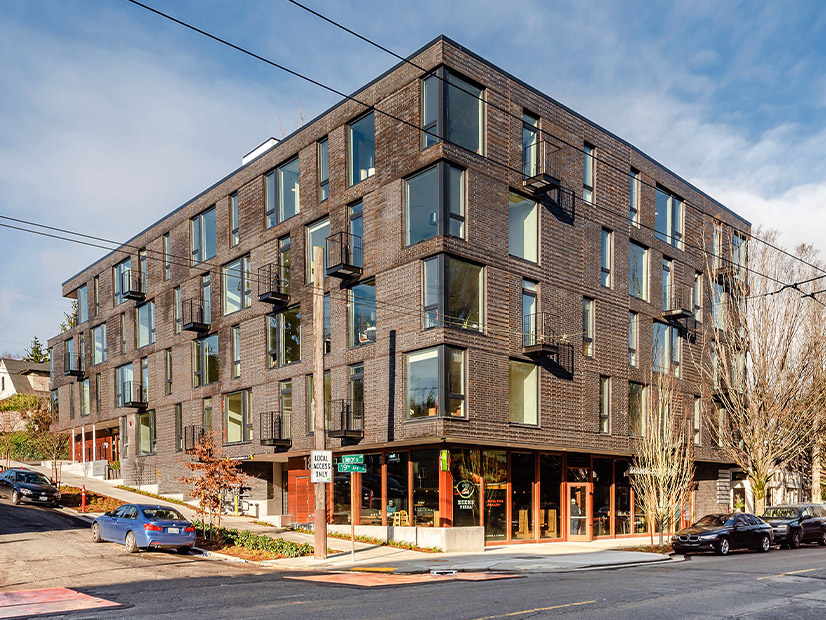
The Washington Senate on Tuesday voted 28-21 along partisan lines to approve a bill designed to trim the carbon footprints of roughly 50,000 buildings in the state.
The amended Senate Bill 5722, introduced by Sen. Joe Nguyen (D), passed the House last Thursday along mostly partisan lines. It now goes to Gov. Jay Inslee for his signature.
Nguyen’s bill calls for the state’s Department of Commerce to develop and implement standards for reducing carbon emissions from “Tier 2” buildings by Dec. 31, 2030. Tier 2 buildings include multifamily residential, non-residential, dormitory, hotel and motel areas ranging from 20,000 to 50,000 square feet. A 2019 law already addresses the carbon footprints of “Tier 1” buildings greater than 50,000 square feet, which number about 10,000 in the state.
Under SB 5722, the Commerce Department must draft standards for Tier 1 structures by Dec. 1, 2023, and inform affected building owners of new requirements by July 1, 2025. Building owners will be required to submit their compliance plans to the agency by July 1, 2027; every five years thereafter they must file updated reports detailing relevant energy management plans, operations and maintenance plans, and energy use analysis.
Building owners who fail to submit documentation of their compliance will face penalties of 30 cents per square foot, with some exceptions made for financial hardship. The bill also provides for establishment of a program to provide early adopters with base incentive payments of 85 cents/square foot — excluding parking and unconditioned spaces.
Owners complying with the requirements after 2030 will be eligible for incentives of 30 cents/square foot, to be administered by participating gas and electric utilities.
Republican opponents of SB 5722 did not say Tuesday why they voted against the bill.
However, Republicans and some business interests have previously voiced concerns about rent control measures being required for building owners to be eligible for the incentives. The final version of the bill eliminated that requirement and allows the Commerce Department to establish “enhanced” incentives for multifamily building owners “willing to commit to antidisplacement provisions.”
The Commerce Department will fine-tune the standards and submit a report to the legislature in 2029.
Buildings account for 27% of Washington’s carbon emissions, the second-largest emitter behind transportation at 45%. In 2018, Washington’s carbon emissions totaled 99.57 million metric tons (MMT). A 2008 law set emission goals of 50 MMT by 2030, 27 MMT by 2040 and 5 MMT by 2050.
Robert Mullin contributed to this article.


